Symposia
Each year the Roger William University Law Review publishes a journal devoted to the issues raised at the annual symposium held at the Law School.
Please note that we are currently in the process of gathering all of the information on past symposia. For some symposia, you will only see listed the participants who wrote and published an article for our symposium edition (that is published every spring following the symposium). If you were a speaker who did not write, and you do not see your name listed in the appropriate symposium, please contact us.
The Indigenous Peoples of New England were among the first in North America to experience European colonization and conquest. How have they been treated by the law and American legal institutions, from the earliest days of settlement to today, and what are Tribes doing to exercise their inherent sovereignty and build thriving native nations?
Meet the Presenters
Bethany Berger is a well-known scholar and professor at the University of Connecticut School of Law. She is a widely read scholar of Property Law and Legal History and one of the leading federal Indian Law scholars in the country. Her highly regarded articles have been published in the Michigan Law Review, California Law Review, UCLA Law Review, and the Duke Law Journal, among other publications. Professor Berger teaches American Indian Law, Tribal Law, and Conflicts of Laws. She has also served as a Judge for the Southwest Intertribal Court of Appeals.
Dr. James Diamond is a professor at Roger Williams University School of Law. He teaches Federal Indian Law, Tribal Courts, and Law & Governments, among other courses. He is also the Dean of Academic Affairs at the National Tribal Trial College. He is the former Director of the Indigenous Peoples Law and Policy Program’s Tribal Justice Clinic and law professor at the University of Arizona College of Law and served as a Special Prosecutor in the Pascua Yaqui Tribal Court in Arizona. Dr. Diamond is certified by the National Board of Trial Advocacy as a criminal trial specialist, has extensive criminal trial experience, and was the lead lawyer in more than 1,000 criminal cases. Dr. Diamond has been instrumental in assisting the RWU Law Review in hosting this Symposium and will be presenting his article: "An Uncomfortable Truth: Law as a Tool of Oppression of the Indigenous Peoples of New England."
Matthew Fletcher is a Professor at Michigan State University College of Law and Director of the Indigenous Law and Policy Center. He sits as the Chief Justice of the Poarch Band of Creek Indians Supreme Court and as an appellate judge for the Colorado River Indian Tribes, the Hoopa Valley Tribe, the Mashpee Wampanoag Tribe, the Match-E-Be-Nash-She-Wish Band of Potawatomi Indians, the Rincon Band of Luiseño Indians, the Santee Sioux Tribe of Nebraska, and the Tulalip Tribes. He is a member of the Grand Traverse Band of Ottawa and Chippewa Indians. Mr. Fletcher is a highly regarded author of multiple law review articles, appearing in the California Law Review, Michigan Law Review, and Stanford Law Review Online, as well as case books such as Federal Indian Law (West Academic Publishing) and Principles of Federal Indian Law (West Academic Publishing). Professor Fletcher is a highly regarded scholar in the field of Federal Indian Law and will be providing the final keynote address for this symposium.
Dr. Taino Palermo is a third-year law student at Roger Williams University School of Law. Dr. Palermo is the Kasiké (Chief) of the Baramaya Guaínía Clan, a federally non-recognized tribal nation indigenous to the Guaínía region of Borikén (known today as Ponce, Puerto Rico). He is also the Deputy Director General of the Federation of Aboriginal Nations of the Americas. Dr. Palermo worked as an education and nonprofit leader for over a decade focusing on community and economic development, urban education, and neighborhood revitalization and earned his doctorate in educational leadership from Jones International University in 2014. As a law student, Dr. Palermo was the founding President of the American Indian Law Student Association (AILSA), among other activities and is currently a Judicial Extern at the U.S. District Court for the District of Rhode Island. Last Spring, Dr. Palermo had the opportunity to participate in an independent research project focusing on a Legal Framework for Federally Non-Recognized Tribal Nations acquiring ancestral lands. He will be presenting his research paper and answering questions on the topic.
Bethany Sullivan is a senior associate attorney with Maier Pfeffer Kim Geary & Cohen LLP. She advises broadly on tribal governance, economic development, fee-to-trust land acquisitions, gaming and business transactions, taxation, natural resources, and other matters involving tribal, federal, and state law. Ms. Sullivan was the founding Director of the Natural Resource Use & Management Clinic at the University of Arizona College of Law and has since with a variety of clients including tribal governments, and taught courses on natural resource and administrative law.
Jennifer Turner is the Assistant City Attorney in Albuquerque New Mexico. Prior to this role, Ms. Turner was an Associate at Frye & Kelly, PC and served as an Assistant Solicitor at the U.S. Department of the Interior, Division of Indian Affairs. Ms. Sullivan and Ms. Turner will be providing an update on the Carcieri decision following the 2019 Publication of their article: "Enough is Enough: Ten Years of Carcieri v. Salazar."
Did the Founders intend the United States of America to be a Christian nation? Does it violate the Establishment Clause of the Constitution to have a Latin cross on a World War One memorial on a public highway or a crèche on the front lawn of a town hall, or to open a meeting of a public body with the Lord’s Prayer? How should history be used to resolve such questions? The Roger Williams University School of Law assembles some of the nation’s most prominent scholars for a one-day, virtual symposium.
Meet the Presenters
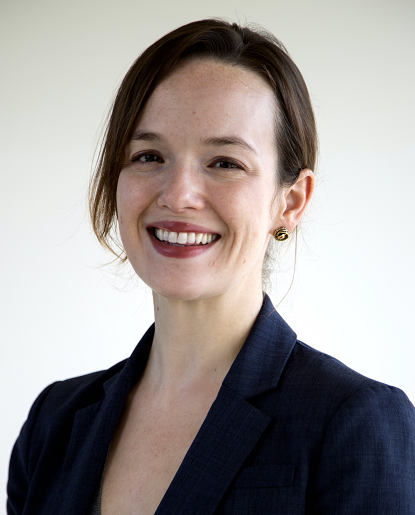
Teresa M. Bejan is Associate Professor of Political Theory at Oxford University. She was previously a research fellow at Columbia University and a member of the political science faculty at Toronto University. She is the author of Mere Civility: Disagreement and the Limits of Toleration (Harvard University Press), which compares views about civil discourse by Roger Williams, John Locke, and Thomas Hobbes, as well as articles and book chapters about the philosophies of those three men on religious freedom and toleration. Her TED Talk, “Is civility a sham,” has more than 1.6 million views. She received a B.A. from the University of Chicago, a M. Phil. from Cambridge University, and a Ph.D. in Political Science from Yale University.
.jpg)
Mary Anne Case is the Arnold I. Shure Professor of Law at the University of Chicago Law School. She has also taught at Columbia University Law School, Princeton University, American Academy Berlin, New York University School of Law, and the Virginia School of Law. She is the author of dozens of articles and book chapters about religious freedom, gender equality, feminism, and other topics. Her work has appeared in the Yale Law Journal, Stanford Law Review, California Law Review, Supreme Court Review, and other leading journals. She received a B.A. from Yale University and a J.D. from Harvard Law School.
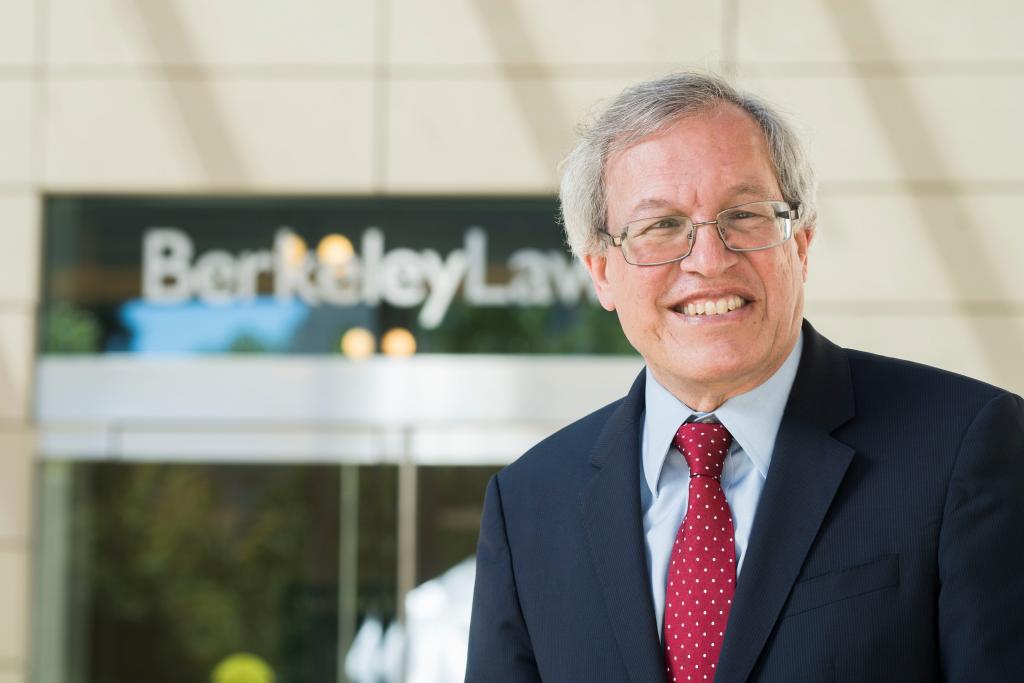
Erwin Chemerinsky is Dean and the Jesse H. Choper Distinguished Professor of Law at the University of California Berkeley School of Law. He was previously the Founding Dean and Distinguished Professor of the University of California Irvine School of Law, where he also held a joint appointment in the Political Science Department. Prior to that, he taught at Duke, UCLA, USC, and DePaul law schools. He is the author of hundreds of professional and popular articles and the author or editor of eleven books, including most recently We the People: A Progressive Reading of the Constitution for the Twenty-First Century (Picador Macmillan). Dean Chemerinsky is one of the most prominent legal scholars and public intellectuals in the nation. He was named one of “top 20 legal thinkers in America” by Legal Affairs, and twice named the Most Influential Person in Legal Education by National Jurist. He received a B.S. from Northwestern University and a J.D. from Harvard Law School.

Steven K. Green is the Fred H. Paulus Professor of Law and Affiliated Professor of History and Religious Studies, and the Director of the Willamette Center for Religion, Law and Democracy. He is the author of seven books, including most recently The Third Disestablishment: Church, State, and American Culture, 1940-1975 (Oxford University Press), and dozens of book chapters and articles about religious freedom. From 1992 to 2002, he was Legal Director and Special Counsel for Americans United for Separation of Church and State. He received a B.A. from Texas Christian University, a J.D. from the University of Texas, and both an M.A. in American Religious History and a Ph.D. in History from the University of North Carolina at Chapel Hill. He did additional graduate work at Duke Law School and Duke Divinity School.
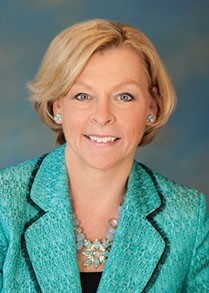
Marci A. Hamilton is the Robert A. Fox Leadership Program Professor of Practice, and Fox Family Pavilion Resident Senior Fellow in the Program for Research on Religion at the University of Pennsylvania. She is also the founder, CEO, and Academic Director of CHILD USA, a nonprofit academic think tank at the University of Pennsylvania dedicated to interdisciplinary research on child abuse and neglect. Her writings include God vs. the Gavel: The Perils of Extreme Religious Liberty (Cambridge University Press), which was nominated for a Pulitzer Prize. She was a law clerk to U.S. Supreme Court Justice Sandra Day O’Connor. Professor Hamilton received a B.A. from Vanderbilt University, an M.A. in English (Fiction Writing) from Penn State, and both an M.A. in Philosophy and a J.D. from the University of the Pennsylvania.
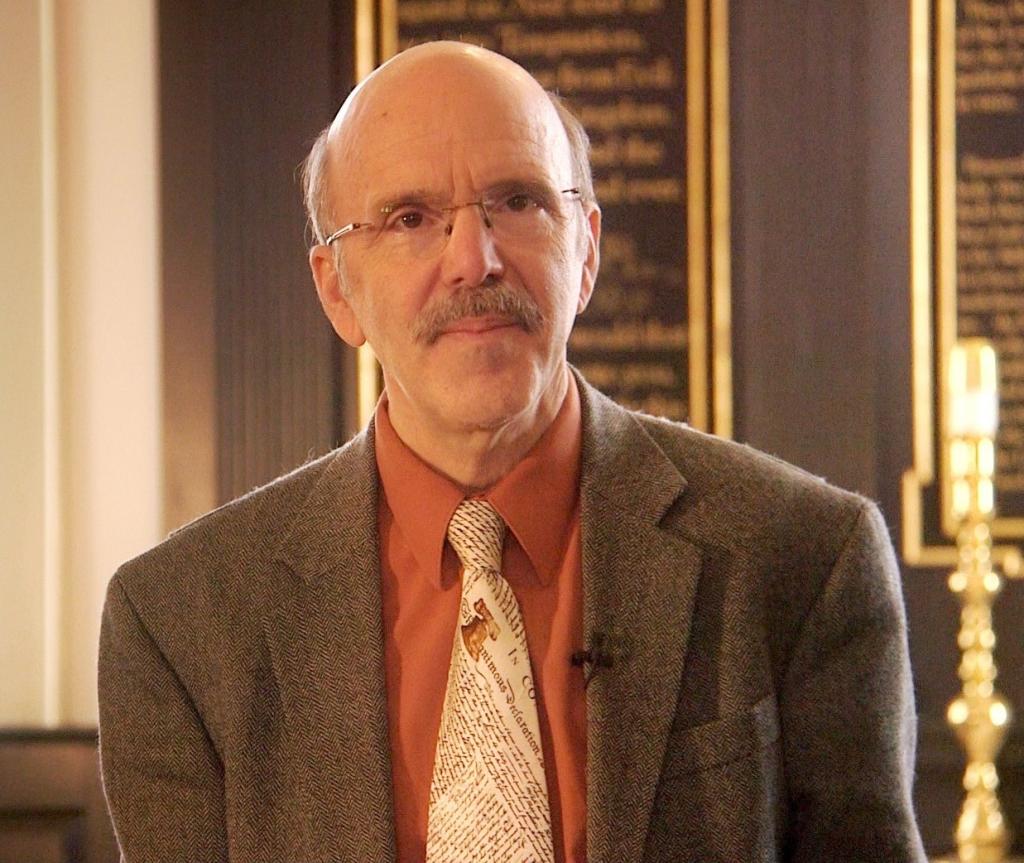
John A. Ragosta is a historian at the Robert H. Smith International Center for Jefferson Studies at Monticello. He has taught law and history at University of Virginia, George Washington University, Oberlin, Hamilton, and Randolph College. He is the author of three books, including Religious Freedom: Jefferson’s Legacy, America’s Creed (University of Virginia Press), which was selected as a featured alternate of the History Book Club, as well as articles and book chapters about the Founders and religious liberty. He has, over the course of his career, worked not only as an historian but as a beekeeper and practicing lawyer. He has been a member of the Advisory Committee for the U.S. Court of International Trade and the American Law Institute, and he is a member of the American Bar Federation. He received a B.S. from Grove City College and both a J.D. and a Ph.D. in History from the University of Virginia.
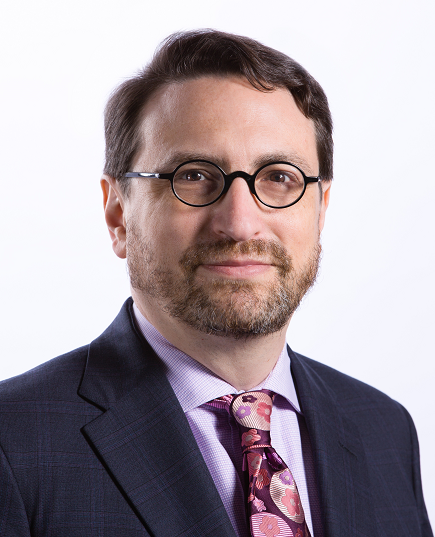
Jay D. Wexler is a Professor of Law at Boston University. He is the author of six books, including most recently Our Non-Christian Nation: How Atheists, Satanists, Wiccans, and Others are Demanding Their Place in American Public Life (Stanford University Press/Redwood), and is presently at work on a seventh book about marijuana policy, which will be published by the University of California Press. He has also written more than two dozen law review articles about church-state relations and other topics, which have been published by Stanford Law Review, Texas Law Review, Vanderbilt Law Review, and other leading journals, as well as commentary and humor articles in popular publications. Professor Wexler received a B.A. from Harvard University, an M.A. in Religious Studies from University of Chicago Divinity School, and a J.D. from Stanford University.
Keynote Speaker
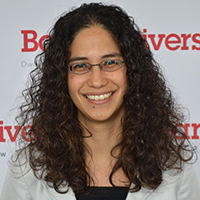
Nancy Chi Cantalupo is an Associate Professor at Barry University School of Law. Her past positions include Associate Vice President for Equity, Inclusion & Violence Prevention at a higher education professional association (NASPA); an Assistant Dean at Georgetown Law; and an attorney with Drinker Biddle & Reath LLP. Her scholarship focuses on the use of law to combat discriminatory violence, particularly gender-based violence, and includes: publications in the Yale Law Journal Forum, Maryland Law Review, and the peer-reviewed social science journal Trauma, Violence & Abuse; coauthored studies in the California Law Review Online, U.C. Davis Law Review, and Utah Law Review; forthcoming articles in the Wake Forest Law Review and Harvard Journal of Law and Gender; and opeds for the New York Times, Time, USA Today, and Washington Post.
Professor Cantalupo has worked to combat gender-based violence in education for nearly 25 years as a researcher, campus administrator, student activist, victims’ advocate, attorney, and policymaker. Her past and present pro bono work includes consultations with President Obama’s White House Task Force to Protect Students from Sexual Assault, participation on a U.S. Senate roundtable, service as a Negotiator on the Negotiated Rulemaking Committee that amended regulations for the Clery Act, and testimony before the Maryland and Virginia state legislatures. Recently she has filed both solely-authored and coauthored comments in federal proceedings related to Title IX, was asked by the American Bar Association’s Commission on Domestic and Sexual Violence to write Recommendations for Practice for investigations of campus dating, domestic, sexual and stalking violence, and co-authored “Title IX & the Preponderance of the Evidence: A White Paper,” signed by over 100 law professors from across the country. She serves or has served on the Boards for the Asian/Pacific-Islander Domestic Violence Resource Project and the Conference of Asian Pacific American Law Faculty.
Panel 1:Title IX: Where are we now?
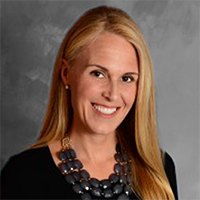
Claire K. Hall, J.D. is a national expert who has trained thousands of faculty, staff and students at colleges and universities across the country on a multitude of higher education compliance related topics. Claire is also the Owner of UECAT, LLC, where her work focuses on providing compliance, training, investigation and consulting services for colleges and universities. Prior to founding UECAT, Claire spent many years working at a large private university, where she served as the Assistant General Counsel and Special Advisor to Student Services and also managed the institution’s Title IX grievance process. Claire holds a Juris Doctorate from Tulane University Law School, a Master’s in Communication from Emerson College and a Bachelor of Arts in Journalism from the University of Rhode Island.
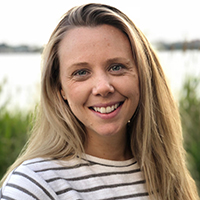
Amanda Walsh, Esq., is a Senior Attorney at the Victim Rights Law Center. Amanda returned to the VRLC in January 2017 as an Education Program Senior Attorney. In this role, Amanda provides training and technical assistance to colleges and universities through the Office on Violence Against Women campus grant program. From 2011-2015, Amanda was a VRLC staff attorney, focusing primarily on the representation of students in both K-12 and higher education settings. She also trained colleges and universities nationally on Title IX and campus sexual assault response. Before returning to the VRLC, Amanda was the Title IX Program Officer at Brown University. She was responsible for implementing Brown’s sexual and gender-based harassment and violence policy and complaint procedures, building Brown’s flagship Title IX Office, and overseeing all related complaint investigations. Amanda is a graduate of Northeastern University and Roger Williams University School of Law.
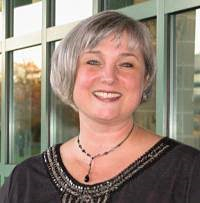
Jen Stanley is the Associate Dean and Title IX Coordinator at Roger Williams University. During her time at RWU, she has been a member of a variety of campus initiatives and task force groups. Jen currently oversees the Green Dot Bystander Intervention efforts, chairs the Title IX Task Force, and co-chairs the Diversity & Inclusion Climate and Intergroup Relations subcommittee.
Jen has been a member of the National Association of Student Personnel Administrators (NASPA) regional advisory board since 2000 and currently serves as the regional Knowledge Community Coordinator. Jen also serves on the national board of directors of The Silent Witness Initiative, a volunteer organization addressing issues of relationship violence, specifically working with college students around the globe in an effort to make campuses safe for all students. She represents RWU as a member of the Rhode Island Cross-Campus Learning Collaborative for Sexual Violence Prevention.
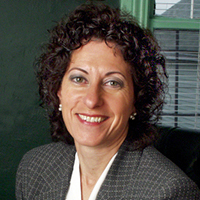
Lynette Labinger is an attorney in private practice in Providence, Rhode Island with a litigation practice concentrating in civil and constitutional rights and employment discrimination law. She first came to Rhode Island in 1974 after completing law school to clerk for Judge Raymond J. Pettine of the federal district court.
Labinger is a Fellow of the American College of Trial Lawyers and has been recognized as a New England “Super Lawyer” each year since 2007, and featured in its 2010 edition for her contributions to civil rights advocacy. In 2010, the RI Commission on Women named Labinger their “Woman of the Year/Advocacy.” In June 2018, she was honored by Rhode Island Legal Services with its “Equal Justice Award” and in October 2019 will be one of the honorees for the Houston Memorial Award of Justice Assistance of Rhode Island.
Labinger served as lead trial and appellate counsel for the plaintiff class in the landmark Title IX sex discrimination case challenging the treatment of women athletes at Brown University (Cohen v. Brown University). She is also a long-time cooperating attorney for the American Civil Liberties Union of RI, which has twice honored her with its Civil Libertarian of the Year Award. Labinger has litigated many high profile civil rights cases in Rhode Island, including cases involving reproductive rights and First Amendment rights, representing a teenager in vindicating her First Amendment right not to have a religious display in her high school and representing a prison inmate in vindicating his right to practice his religion in prison. Labinger served as Associate and Chief Judge of the Housing Court of the City of Providence from 2004 to January 2019.
Panel 2: Due Process Panel
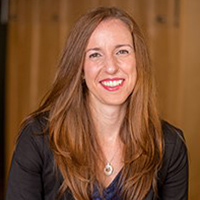
Angela Carr is an accomplished civil litigator and trial attorney, Angela focuses her practice on medical and professional liability defense. She advises medical professionals, hospitals, medical practices, and other healthcare-related organizations in all stages of the litigation lifecycle. Angela provides skilled representation to health care providers before federal and state courts, administrative agencies, and licensing boards in Massachusetts and Rhode Island. In addition, she routinely consults with hospitals and healthcare practice groups on risk management and patient safety. Angela also represents students involved in Title IX investigations at local colleges.
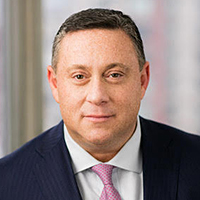
Andrew T. Miltenberg is a founding partner of Nesenoff & Miltenberg, LLP. Miltenberg is nationally renowned due process attorney representing students and faculty in Title IX and related disciplinary matters and, if necessary, commencing lawsuits on their behalf. Miltenberg has brought a number of groundbreaking Title IX lawsuits including the first class action case against Michigan State University and is described by Newsweek at the “go-to attorney for students” facing Title IX issues. Some of his high profile Title IX federal litigation included Doe v. Brown University, Doe v. Columbia University, Grant Neal v. CU Pueblo,Keith Mumphrey v. Michigan State Univ; Paul Nungesser v. Columbia (a/k/a the mattress girl case), Doe v. Purdue University; Boermeester v. USC, and Doe v. Grinnell.
Miltenberg has vigorously and successfully defended students and faculty at disciplinary proceedings facing suspension or expulsion from a wide range of colleges and universities often. These institutions range from small, elite liberal arts colleges to large public universities. In all, Andrew has represented more than 150 students and faculty in college disciplinary hearings in more than 30 states. He has also filed numerous civil lawsuits against universities often traveling across the country in a search for justice in connection with mistreatment of accused students and faculty.
He is often called upon by national media and academic publications to provide expert commentary on Title IX and its related developments and has been featured in The New York Times, The Washington Post and many other media outlets. A passionate advocate, colleagues often seek Miltenberg as trial counsel for his aggressive yet efficient tactical choices, thorough preparation and composure. Celebrating its 27th year, Nesenoff & Miltenberg, LLP prides itself on its dedicated, thoughtful and common-sense approach to law and business.
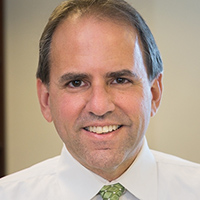
Steven M. Richard is a partner at Nixon Peabody LLP with thirty years of trial and appellate experience. He has litigated Title IX and student conduct matters extensively in federal and state courts nationally. Steven was trial and appellate counsel in Wills v. Brown University, 184 F.3d 20 (1st Cir. 1999), which remains twenty years later a widely cited Title IX precedent regarding institutional liability. Subsequent to the issuance of the 2011 Dear Colleague letter, Steven has defended colleges and universities in Title IX lawsuits filed by complainants and respondents, including a trial before Chief Judge William E. Smith in the Rhode Island Federal District Court. Steven leads Nixon Peabody’s national Title IX team and writes 12-15 client alerts annually addressing Title IX administrative and judicial developments. He is an active member of the Rhode Island Federal District Court Bench/Bar Committee and an Executive Board member of the Rhode Island Chapter of the Federal Bar Association. Steven earned his undergraduate degree from Boston University, his law degree from Notre Dame Law School where he was a member of its Law Review, and his master of business administration from Bryant University.
Panel 3: Consent on Campus Panel
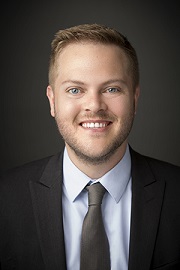
Tyler Coward is an attorney and a 2010 graduate of Indiana University-Bloomington, where he was an executive board member of Sigma Phi Epsilon and a director on the Indiana Memorial Union Board of Directors, IU’s largest student programming board. He is also 2015 graduate of the Michigan State University College of Law, where he participated in the school’s First Amendment Clinic and served as president of MSU Law’s chapter of the Federalist Society. During law school, Tyler completed legal internships at the US Department of the Interior’s Departmental Ethics Office and later at the US House of Representatives Committee on Oversight and Government Reform.
Since joining FIRE, Tyler has testified in state legislatures across the country about campus free speech and due process issues. He has also spoken at nearly 50 colleges and universities nationwide, discussing First Amendment freedoms, common ways in which universities censor student expression, and how students can stand up for their right to free speech.
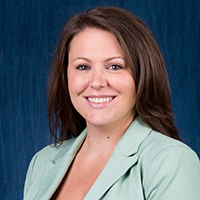
Tiffany Gaffney is the Assistant Dean of Students and Assistant Title IX Coordinator at Providence College. She also represents Providence College as a member of the Rhode Island Cross-Campus Learning Collaborative for Sexual Violence Prevention.

Jennifer Gentile Long (MGA, JD) currently serves as the Chief Executive Officer of AEquitas, which she co-founded in April 2009 and serves as an expert on issues related to the prosecution of sexual violence and gender-based violence and human trafficking. She began her career as an Assistant District Attorney in Philadelphia where she prosecuted cases involving adult and child physical and sexual abuse and served on a team in the Family Violence and Sexual Assault Unit. After her departure, served as an advocate for victims of domestic violence and child abuse in Bermuda and Philadelphia, respectively.
Jennifer was a Senior Attorney and then was appointed the Director of the National Center for the Prosecution of Violence Against Women at the American Prosecutors Research Institute at NDAA. She promoted meaningful multidisciplinary collaboration and improved prosecution practices through authorship and contribution to numerous articles, publications, resources and curricula and provided assistance to prosecutors and allied professionals.
Jennifer’s commitment to the identification, implementation and preservation of innovative, research-informed practices led her to co-found AEquitas, where she continues to work with prosecutors, allied professionals, and policy makers across the United States and internationally. Jennifer serves as an Advisory Committee Member with the American Law Institute, an Editorial Board Member with the Civic Research Institute for the Sexual Assault and Domestic Violence Reports, and an Adjunct professor at Georgetown University Law Center, where she teaches Prosecuting Sexual Violence: From Research to Practice.
The Trump Administration has driven a renewed focus on immigration law and policy. Immigration was a signature issue for presidential candidate Trump during the 2016 campaign. Since his inauguration, immigration has rarely left the headlines. The original and revised Refugee Executive Orders pausing travel to the U.S. of refugees and nationals of six (originally seven) countries spurred litigation and political mobilization, including an order in June from the Supreme Court, which will revisit the case this October, coinciding with our conference. President Trump is also toughening border security, and has proposed substantial new expenditures for a border wall. In addition, another Executive Order has requested data on cities whose immigration enforcement policies diverge from the federal government’s approach, raising the specter of possible repercussions for federal funding. Moreover, the U.S. Department of Homeland Security (DHS) has changed interior enforcement policy, arresting noncitizens who were not an enforcement priority for the Obama administration. At the same time, President Trump has continued a key immigration initiative of the Obama administration, the Deferred Action for Childhood Arrivals (DACA) program, that offers a reprieve from removal to so-called “Dreamers”—noncitizens brought to the U.S. as children who lack a legal status but nevertheless have profound attachments to the United States.
Our conference will explore these issues with an array of distinguished speakers, including Stephen Legomsky, Washington University professor-emeritus and former Chief Counsel, Citizenship & Immigration Services, U.S. Dep’t of Homeland Security; Peter Schuck, former Yale Law School professor; Muneer Ahmad, Deputy Dean for Experiential Education at Yale Law; Josh Blackman, South Texas College of Law; Hon. Jorge Elorza, Roger Williams Law Professor & Mayor of Providence, RI; Hon. Sheldon Whitehouse, U.S. Senate, RI (invited); Mark Noferi, Executive Office for Immigration Review, U.S. Dep’t of Justice (invited); RWU Law alum Luis Mancheno, Clinical Fellow, Cardozo Law School, Maryellen Fullerton, Brooklyn Law School; Lenni Benson, New York Law School; and our very own Deborah Gonzalez, Director of the Roger Williams Immigration Clinic. Papers from the conference will be published in the Roger Williams Law Review. We look forward to seeing you for a day of compelling debate!
Marine debris poses a serious threat to New England’s coastline. Every year, derelict fishing gear, plastic bottles, plastic bags, cigarettes, abandoned vessels, and other debris washes ashore in New England. This debris causes negative social, environmental, and economic impacts, such as decreased aesthetic value, harm to coastal ecosystem health, and damage to vessels and gear. These challenges create complex management problems for coastal managers and attorneys, who work to mitigate the creation of new debris and remove and manage debris that washes ashore.
This Symposium will discuss the adequacy of U.S. law and policy to prevent the creation of new marine debris and to remove debris once it is created. The first session will include keynote presentations on the science, law, and policy of marine debris. Speakers will then examine case studies from coastal New England states to consider how each state identified a marine debris problem, took steps to address it, and how the approach could serve as a model elsewhere. Finally, a panel of attorneys will lead a facilitated discussion to identify effective legal and policy strategies to prevent and manage marine debris in New England and to frame questions for future research.
Keynote Address: “American Injustice: Mercy, Humanity and Making a Difference”
Bryan Stevenson
Executive Director of the Equal Justice Initiative; Professor of Clinical Law, New York University School of Law; and author of Just Mercy
For more information on Bryan Stevenson, please visit: https://eji.org/bryan-stevenson/
Featured Speaker
“Race to Incarcerate: The Causes and Consequences of Mass Incarceration”
Marc Mauer
Executive Director of The Sentencing Project (Washington, D.C.); author of Race to Incarcerate and Invisible Punishment: The Collateral Consequences of Mass Imprisonment
Mass Incarceration
The United States is the World's Leading Jailer
Our country has 5% of the world’s population, but 25% of its prisoners.
Our Rate of Incarceration is Historic
2.2 million Americans are incarcerated – an increase of 500% over the last 40 years.
we Imprison Disproportionately
1 out of every 3 African-American males born today and 1 out of every 6 Latino males are likely to be incarcerated during their lifetimes. Most prisoners are poor, undereducated, and underemployed.
The Costs are Staggering
The correctional system in America is an $80 billion enterprise. The cost to our communities and individual lives is incalculable.
Mass Incarceration Has Not Made Us Safer
Mass incarceration is the result of changes in policy, not an increase in crime. In recent years, a number of states have successfully reduced incarceration while maintaining reductions in crime.
And in Rhode Island ... We also have Mass Probation
Over 24,000 of our citizens are on probation––the fourth highest probation rate in the country – making it harder for them to educate themselves, obtain jobs, and acquire the full benefits of citizenship. We also have one of the highest cost-per-offender rates in the United States.
Moving Toward Solutions
The symposium will be a forum for collective conversation among those who care deeply about our criminal justice system. We will work together to examine the problems of mass incarceration and mass probation and move forward toward solutions.
Special thanks to:
Dean Michael J. Yelnosky, Roger Williams University School of Law
Hon. Judith C. Savage, Associate Justice, Rhode Island Superior Court (ret.); Distinguished Jurist in Residence, Roger Williams University School of Law (Advisor to Roger Williams University School of Law Symposium Planning Committee)
Meghan Kruger, Danielle Dufault, and Nicholas Resendes, Roger Williams University School of Law Symposium Planning Committee Co-Chairpersons
William J. Trezvant, President, Thurgood Marshall Law Society
The Law School’s 20th Anniversary Symposium theme will revolve around the NCAA.
Some have accused the NCAA of engaging in witch-hunt investigations and unfair hearings of players and coaches accused of violating its rules, thereby recklessly destroying careers. This symposium asks: should there be some form of judicial—or other independent—review of NCAA enforcement actions?
Papers are to be published in a special symposium edition of the Roger Williams University Law Review during in the Spring of 2015.
Contributors:
Gordon Hylton, Professor of Law, Marquette University;
Donna A. Lopiano, President of the consulting group Sports Management Resources;
Alan C. Milstein, one of the nation’s most prominent litigation attorneys;
Joe Nocera, columnist for the New York Times and commentator on NRP’s “Weekend Edition with Scott Simon”;
Terri Peretti, Professor of Political Science, Santa Clara University;
Brian L. Porto, Professor of Law, Vermont Law School and deputy director of its Sports Law Institute
Conference Organizer:
Professor Carl T. Bogus, Roger Williams University School of Law
How believable are children when they accuse someone of sexually abusing them? Can we tell when children are truthful, lying, or relating false memories implanted by adults? If a child has difficulty testifying eye-to-eye with an alleged abuser in open court, should the court allow the child to testify from the judge’s chambers by closed-circuit TV or permit adults—such as doctors, social workers, teachers, police—to testify about what the child told them? How are public opinion and the judicial system affected by media coverage of such cases? These are subjects of passionate controversy. This symposium brings together leading researchers in the field—from law, psychology, public policy, and communications—for what promises to be a lively and important discussion.
Symposium Participants and Topics:
Nicholas C. Bala, Professor, Law Faculty, Queens University, Canada . Topic: “Recognizing Children’s Capacity and Facilitating Their Testimony: Psychological Research Informing Reform in Canada’s Child Witness Laws”
Ross A. Cheit, Professor of Political Science and Public Policy, Brown University. Topic: Professor Cheit will explore the popular appeal of the witch-hunt narrative in American culture and document how that narrative has been misapplied in child sexual abuse cases.
Jennifer J. Freyd, Professor of Psychology, University of Oregon. Topic: “Avoiding Judicial Betrayal of Child Witnesses: Implications from Betrayal Trauma Theory”
Gail Goodman, Distinguished Professor of Psychology, University of California-Davis. Topic: “Children’s Eyewitness Memory and Testimony”
Steven M. Gorelick, Professor of Media Studies, Hunter College, CCNY. Topic: “Child Sexual Abuse, Media Coverage, and the Criminal Justice System: The Struggle for Fair Trials and Due Process in Times of Moral Panic”
Thomas D. Lyon, Judge Edward J. and Ruey L. Guirado Chair in Law and Psychology, University of Southern California School of Law. Topic: Professor Lyon will discuss how research in interviewing has suggested improvements in the process by which attorneys elicit children’s testimony in court.
Wendy J. Murphy, Adjunct Professor of Law, New England Law-Boston; former prosecutor; consultant; author of And Justice For Some. Topic: Professor Murphy will discuss children and the concept of testimonial accommodations as understood through existing disabilities rights laws.
Debra Poole, Professor of Psychology, Central Michigan University. Topic: “Sources of Unreliable Testimony in Children”
This unique edition of the Law Review combines articles from two Marine Law symposia, as well as other articles about an area of growing concern in Rhode Island: coastal and marine spatial planning. The first symposium, “Taking Stock: The Magnusen-Stevens Act Revisited,” took place on November 4th and 5th, 2010, and examined the current and future state of the sustainable management of the nation’s fisheries. The second symposium entitled “Blowout: Legal Legacy of the Deepwater Horizon Catastrophe,” took place the following April and brought national leaders, elected officials, and legal experts together to discuss and examine the law’s response to the BP Oil spill in the Gulf of Mexico in 2010. Among the issues considered at that symposium were tort liability, natural resource damages, and changes to the law and regulation following the spill.
Contributors and Topics:
“Taking Stock: The Magnusen-Stevens Act Revisited”
Sheldon Whitehouse, United States Senator for the State of Rhode Island and Providence Plantations. Topic: “Fisheries Science: A Bridge, Not a Divide”
Eric Schwaab, Assistant National Oceanic and Atmospheric Administration (NOAA) Administrator for NOAA Fisheries. Topic: “The Magnuson Act Thirty-Five Years Later”
Peter Shelley, Senior Counsel at Conservation Law Foundation, Inc., J.D., Suffolk University Law School, B.A., Hobart College. Topic: “Have the Managers Finally Gotten It Right?: Federal Groundfish Management in New England”
Grover Fugate, Executive Director of the Rhode Island Coastal Resources Management Council (CRMC), M.B.A., Memorial University, B.S., University of Connecticut. Topic: “Rhode Island’s Ocean Special Area Management Plan: Leading the Way for the Nation”
David E. Frulla, Partner at Kelley Drye & Warren LLP (Washington, D.C.), J.D., University of Virginia School of Law, B.A., Dartmouth College.
George M. Hagerman, Jr., Senior Research Assistant at the Virginia Tech Advanced Research Institute, Director of Research for the Virginia Coastal Energy Research Consortium.
Michele G. Hallowell, Associate at Kelley Drye & Warren LLP (Washington, D.C.), J.D., University of Maine Law School, B.S., Boston College. Topic: “Found in the Wind: The Value of Early Consultation and Collaboration with Other Ocean Users for Successful Offshore Wind Development”
“Blowout: Legal Legacy of the Deepwater Horizon Catastrophe”
Jack Reed, United States Senator for the State of Rhode Island and Providence Plantations. Topic: “After the Spill: Protecting the Public, the Environment, and the Economy from Drilling Disasters.”
Juliet Eilperin, House of Representatives reporter for The Washington Post, B.A., Princeton University. Topic: “Troubled Waters: Federal Oversight of Offshore Oil Drilling.”
Deborah E. Greenspan, Co-leader of Dickstein Shapiro’s Complex Dispute Resolution Group, J.D., University of Michigan Law School, B.S., University of Michigan.
Matthew A. Neuburger, Associate in Dickstein Shapiro’s Complex Dispute Resolution Group, J.D., Northwestern University School of Law, B.B.A., George Washington University. Topic: “Settle or Sue? The Use and Structure of Alternative Compensation Programs in the Mass Claims Context.”
George W. Conk, Adjunct Professor of Law & Senior Fellow at the Louis Stein Center for Law & Ethics at Fordham Law School, J.D., Rutgers-Newark School of Law, M.A., Boston University, A.B., College of the Holy Cross. Topic: “Diving into the Wreck: BP and Kenneth Feinberg’s Gulf Coast Gambit.”
David Petit, Senior Attorney for the Natural Resources Defense Council, J.D., UCLA Law School. David Newman, Oceans Program Attorney for the National Resources Defense Council, J.D., American University’s Washington School of Law, B.A., University of Michigan. Topic: “Federal Public Law and the Future of Oil and Gas Drilling on the Outer Continental Shelf.”
Sidney A. Shapiro, University Chair in Law at Wake Forest University, J.D., University of Pennsylvania Law School, B.S., University of Pennsylvania. Topic: “The Complexity of Regulatory Capture: Diagnosis, Causality, and Remediation.”
Thomas C. Galligan, Jr., President and Professor of Humanities at Colby-Sawyer College, J.D., University of Puget Sound (now Seattle University) School of Law, L.L.M., Columbia University School of Law, B.A., Stanford University. Topic: “A Sad Tale of the Deepwater Horizon Disaster, Normal Accidents, and Our Appetite for Risk.”
Additional Contributors to the Symposium Edition
Susan E. Farady, Director of the Marine Affairs Institute and the Rhode Island Sea Grant Legal Program at the Roger Williams University School of Law, J.D., Vermont Law School. “Sea State: An Introduction to Reflections on Fisheries, Oil Spills, and Emerging Issues in Ocean Law and Policy.”
Anne Hayden, Consultant in natural resource management, research and policy, doctoral candidate in Interdisciplinary Studies at the University of Maine, Adjunct Lecturer in Environmental Studies at Bowdoin College, columnist for National Fisherman magazine. “Implementation of the National Ocean Policy: Lessons from New England.”
Julia B. Wyman, Staff Attorney at the Marine Affairs Institute. “Should Penguins Really Have to Wear Sweaters?”
David M. DiSegna, Candidate for Juris Doctor, Roger Williams University School of Law, 2012, B.A., Boston University. “In re Review of Proposed Town of New Shoreham Project: A Survey and Commentary on an Important Decision for Rhode Island’s Renewable Energy Development.”
Robert Thompson, Chair of the Department of Marine Affairs at the University of Rhode Island, J.D., University of California at Berkeley, Ph.D., University of California at Berkeley. “Beach Access, Trespass, and the Social Enactment of Property.”
The topic of comparative law is vast. It bridges oceans and whole continents. However, the methodology of comparative law varies in approach. Is it even worth studying comparative law of closely situated nations? Should science play a role in the methodology of comparative law? Or should comparative law be studied through the history and memory of the individuals of a nation? All of these questions and more are discussed in this symposium which proved to be insightful and engaging.
Symposium Participants and Topics:
Chris Nwachukwu Okeke, Professor of Law, Golden Gate University School of Law, San Francisco, California. Topic: “African Law in Comparative Law: Does Comparativism Have Worth?”
Edward J. Eberle, Visiting Professor, Boston University School of Law, Distinguished Research Professor Law, Roger Williams University School of Law. Topic: “The Methodology of Comparative Law.”
Peter E. Quint, Jacob E. France Professor of Constitutional Law, University of Maryland School of Law. Topic: “A Return to Luth.”
Colin B. Picker, Associate Professor, Law Faculty, University New South Wales, Sydney, Australia. Topic: “Comparative Law Methodology & American Legal Culture: Obstacles and Opportunities.”
Vivia Grosswald Curran, Professor of Law, University of Pittsburgh. Topic: “History, Memory and Law.”
David J. Gerber, Distinguished Professor Law, Chicago Kent College of Law. Topic: “Method, Community & Comparative Law: An Encounter With Complexity Science.”
Amalia D. Kessler, Professor of Law, Stanford Law School. Topic: “The Making and Debunking of Legal Tradition.”
Does it matter how judges are chosen? Are elections or merit-based selections of judges preferable? Is there an alternative method to the selection of judges? Judicial selection is a contentious and often-debated topic. This symposium brings together law professors, judges, and legal practitioners to discuss the process of judicial selection in Rhode Island, including the current selection system, concerns about the current selection system and potential improvements to the system.
Symposium Participants and Topics:
Michael J. Yelnosky, Professor and Dean Designate, Roger Williams University School of Law. Topic: “The Impact of ‘Merit Selection’ on the Characteristics of Rhode Island Judges”
Judge William E. Smith, District Judge, United States District Court, District of Rhode Island. Topic: “Reflections on Judicial Merit Selection, the Rhode Island Experience, and Some Modest Proposals for Reform and Improvement”
Mirya R. Holman, Ph.D., Assistant Professor of Political Science, Florida Atlantic University. Topic: “Measuring Merit in Rhode Island’s Natural Experiment in Judicial Selection”
Alan S. Fink, retired partner of Edwards Angell Palmer & Dodge LLP; former president of R.I. Bar Association. Topic: “Rhode Island’s Judicial Merit Selection Process Merits Improvement”
John Marion, executive director of Common Cause Rhode Island. Topic: “Judging How We Pick Judges: Fifteen Years of Merit Selection in Rhode Island”
Joseph Larisa, graduate of Duke University and Duke University School of Law, currently of Larisa Law and Consulting. Topic: “The Merit Selection Continuum”
Rachel Paine Caufield, Ph.D, Associate Professor, Drake University Department of Politics and International Relations. Topic: “What Makes Merit Selection Different?”
Emily J. Sack, Professor of Law, Roger Williams University School of Law. Topic: “Judicial Selection in Rhode Island: Assessing the Experience with ‘Merit Selection’: Response”
This two-day Symposium explored means to achieve a viable marine renewable energy industry for the United States, with a focus on offshore wind, hydrokinetics (wave, current and tidal), and ocean thermal energy conversion. Its panels discussed a range of solutions for the nascent U.S. marine renewable energy sector’s current legal, economic and policy challenges. These included:
- Jurisdictional and permitting/licensing schemes.
- Developing strategies for marine renewable energy regulation.
- Financing and economic issues.
- Renewable energy integration (engineering, market and policy).
- Human dimension issues.
- International perspectives on offshore energy projects.
- Offshore energy research & development funding.
The symposium’s goal was to quantify means of supporting a marine renewable energy industry, while addressing local, tribal, state, federal and public needs related to the protection, conservation, and management of our marine resources, as well as co-existing with the many uses of the marine environment.
Symposium Participants & Topics:
Sheldon Whitehouse, United States Senator for the State of Rhode Island and Providence Plantations. Topic: Foreword
Megan Higgins, Research Counsel, Rhode Island Sea Grant Legal Program and Marine Affairs Institute at Roger Williams University School of Law. Topic: “Is Marine Renewable Energy a Viable Industry in the United States? Lessons Learned from the 8th Marine Law Symposium”
Jack K. Sterne, Thomas C. Jensen, Julie Keil, Richard Roos-Collins, David Wand. Topic: “The Seven Principles of Ocean Renewable Energy: A Shared Vision and Call for Action”
Peter J. Schaumberg, Renewable Energy Committee Chair, Beveridge & Diamond, P.C., previously Deputy Associate Solicitor for the Division of Mineral Resources at the United States Department of the Interior; Angela F. Colamaria, senior associate, Beveridge & Diamond, P.C. Topic: “Siting Renewable Energy Projects on the Outer Continental Shelf: Spin, Baby, Spin!”
Ed Feo, Milbank Tweed Hadley & McCloy, LLP and Josh Ludmir, Milbank Tweed Hadley & McCloy, LLP. Topic: “Challenges in the Development and Financing of Offshore Wind Energy”
1998-2008 Symposia
